Hyundai i30 vs Renault Captur - Differences and prices compared
Compare performance (140 HP vs 158 HP), boot space and price (24000 £ vs 21100 £ ) at a glance. Find out which car is the better choice for you – Hyundai i30 or Renault Captur?
Costs and Efficiency:
Price and efficiency are often the first things buyers look at. Here it becomes clear which model has the long-term edge – whether at the pump, the plug, or in purchase price.
Renault Captur has a slightly advantage in terms of price – it starts at 21100 £ , while the Hyundai i30 costs 24000 £ . That’s a price difference of around 2863 £.
Fuel consumption also shows a difference: Renault Captur manages with 4.40 L and is therefore noticeable more efficient than the Hyundai i30 with 5.70 L. The difference is about 1.30 L per 100 km.
Engine and Performance:
Under the bonnet, it becomes clear which model is tuned for sportiness and which one takes the lead when you hit the accelerator.
When it comes to engine power, the Renault Captur has a to a small extent edge – offering 158 HP compared to 140 HP. That’s roughly 18 HP more horsepower.
In acceleration from 0 to 100 km/h, the Renault Captur is slight quicker – completing the sprint in 8.90 s, while the Hyundai i30 takes 9.60 s. That’s about 0.70 s faster.
In terms of top speed, the Hyundai i30 performs barely noticeable better – reaching 197 km/h, while the Renault Captur tops out at 180 km/h. The difference is around 17 km/h.
There’s also a difference in torque: Renault Captur pulls minimal stronger with 265 Nm compared to 253 Nm. That’s about 12 Nm difference.
Space and Everyday Use:
Beyond pure performance, interior space and usability matter most in daily life. This is where you see which car is more practical and versatile.
Both vehicles offer seating for 5 people.
In curb weight, Hyundai i30 is minimal lighter – 1291 kg compared to 1323 kg. The difference is around 32 kg.
In terms of boot space, the Renault Captur offers slight more room – 422 L compared to 395 L. That’s a difference of about 27 L.
In maximum load capacity, the Renault Captur performs hardly perceptible better – up to 1363 L, which is about 62 L more than the Hyundai i30.
When it comes to payload, Hyundai i30 slightly takes the win – 509 kg compared to 453 kg. That’s a difference of about 56 kg.
Who wins the race in the data check?
The Renault Captur is far ahead overall in the objective data comparison.
This result only shows which model scores more points on paper – not which of the two cars feels right for you.
Costs and Consumption
View detailed analysis
Engine and Performance
View detailed analysis
Dimensions and Body
View detailed analysis
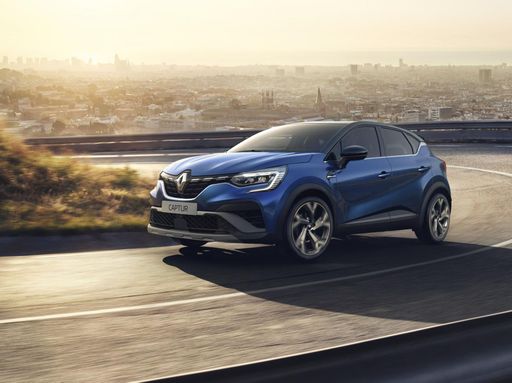
Renault Captur
Hyundai i30
The Hyundai i30 proves that sensible can also be stylish, offering a confident driving character wrapped in neat, modern design. It serves up a roomy, well-equipped cabin and composed ride that make everyday motoring feel like a clever purchase rather than a compromise.
details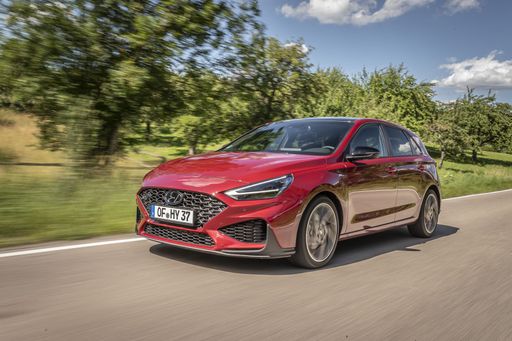
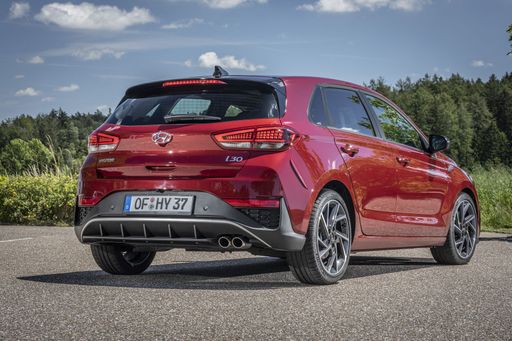
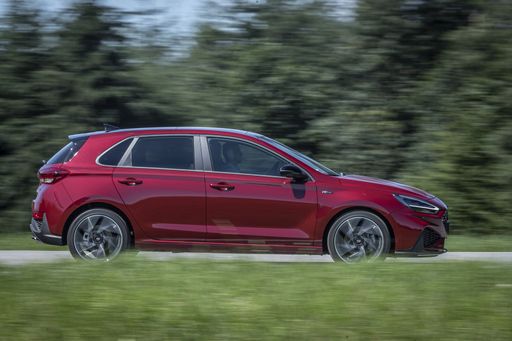
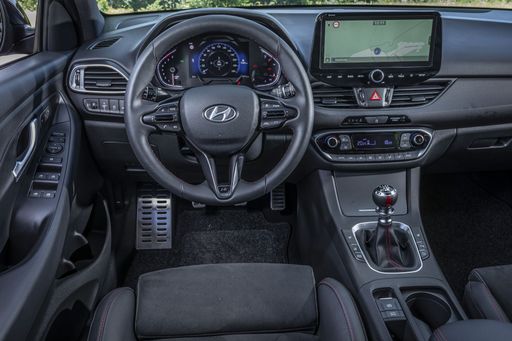
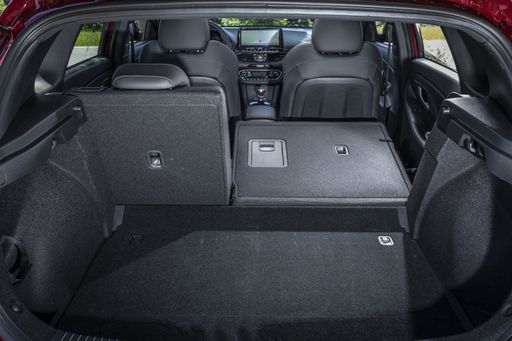
Renault Captur
The Renault Captur is a cheeky little crossover that pairs city-friendly agility with a roomy, well-thought-out cabin and enough style to turn heads at the lights. It’s a sensible choice for buyers who want practical versatility and a dash of personality on their daily drives, without taking itself too seriously.
details
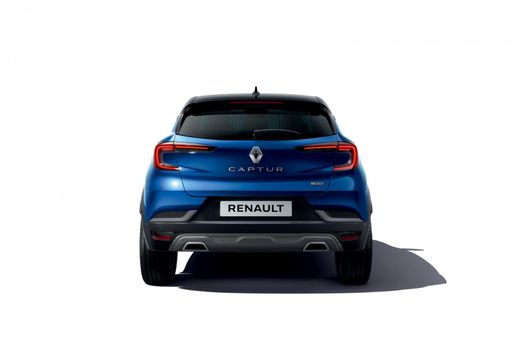
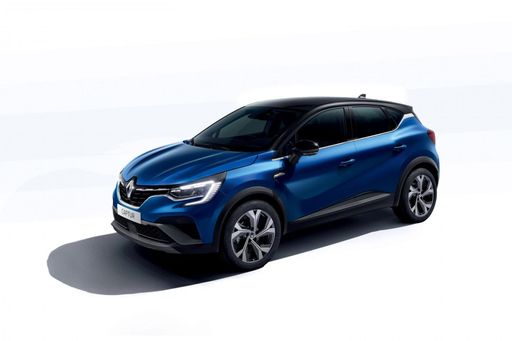
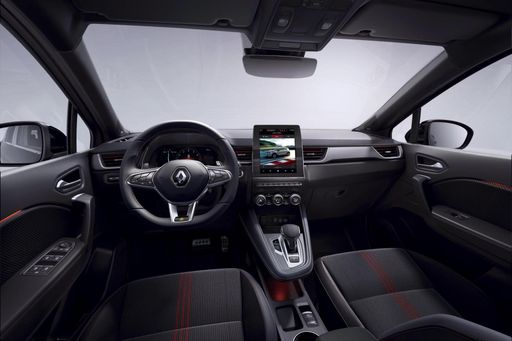
Costs and Consumption |
|
|---|---|
|
Price
24000 - 29300 £
|
Price
21100 - 28400 £
|
|
Consumption L/100km
5.7 - 6 L
|
Consumption L/100km
4.4 - 6 L
|
|
Consumption kWh/100km
-
|
Consumption kWh/100km
-
|
|
Electric Range
-
|
Electric Range
-
|
|
Battery Capacity
-
|
Battery Capacity
-
|
|
co2
130 - 136 g/km
|
co2
100 - 137 g/km
|
|
Fuel tank capacity
50 L
|
Fuel tank capacity
48 L
|
Dimensions and Body |
|
|---|---|
|
Body Type
Hatchback
|
Body Type
SUV
|
|
Seats
5
|
Seats
5
|
|
Doors
5
|
Doors
5
|
|
Curb weight
1291 - 1407 kg
|
Curb weight
1323 - 1441 kg
|
|
Trunk capacity
395 L
|
Trunk capacity
326 - 422 L
|
|
Length
4340 mm
|
Length
4239 mm
|
|
Width
1795 mm
|
Width
1797 mm
|
|
Height
1455 mm
|
Height
1575 mm
|
|
Max trunk capacity
1301 L
|
Max trunk capacity
1363 L
|
|
Payload
463 - 509 kg
|
Payload
447 - 453 kg
|
Engine and Performance |
|
|---|---|
|
Engine Type
Petrol, Petrol MHEV
|
Engine Type
Full Hybrid, Petrol, Petrol MHEV
|
|
Transmission
Manuel, Automatic
|
Transmission
Automatic, Manuel
|
|
Transmission Detail
Manual Gearbox, Dual-Clutch Automatic
|
Transmission Detail
Automatic Gearbox, Manual Gearbox, Dual-Clutch Automatic
|
|
Drive Type
Front-Wheel Drive
|
Drive Type
Front-Wheel Drive
|
|
Power HP
100 - 140 HP
|
Power HP
115 - 158 HP
|
|
Acceleration 0-100km/h
9.6 - 13.1 s
|
Acceleration 0-100km/h
8.9 - 12.3 s
|
|
Max Speed
178 - 197 km/h
|
Max Speed
180 km/h
|
|
Torque
172 - 253 Nm
|
Torque
160 - 265 Nm
|
|
Number of Cylinders
3 - 4
|
Number of Cylinders
3 - 4
|
|
Power kW
74 - 103 kW
|
Power kW
84 - 116 kW
|
|
Engine capacity
998 - 1482 cm3
|
Engine capacity
1199 - 1789 cm3
|
General |
|
|---|---|
|
Model Year
2024
|
Model Year
2025
|
|
CO2 Efficiency Class
D, E
|
CO2 Efficiency Class
C, D, E
|
|
Brand
Hyundai
|
Brand
Renault
|
What drive types are available for the Hyundai i30?
Available configurations include Front-Wheel Drive.




